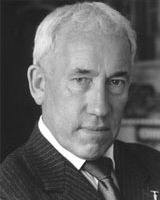Book-of-the-Week
 It's what's for dinner.
It's what's for dinner.
"Never judge a book by the cover is one of those pieces of advice that's true about everything except books." ~ John Connolly
Today is the first day of Banned Books Week, an annual event near and dear to our Vromanian hearts. Sponsored by both the American Booksellers Association and the American Library Association, Banned Books Week strives to bring attention to titles that have been removed from libraries, challenged in school curricula, or limited to a "select" group of readers. In short, Banned Books Week celebrates the right of readers to read whatever we darn well please.
"In a very real sense, people who have read good literature have lived more than people who cannot or will not read."
The other day at a management meeting I received the sad news that both Rick's Drive-in and the White Hut are going to be closing -- or at least moving their places of operation. I hear that the land on which each sits has been sold to make way for more luxury condos and apartments. New neighbors are nice, but the disappearance of a couple of favorite local eateries has thrown my co-workers into a tizzy. Where will we ever be able to get fries as good as Rick's?
 Simon Callow is best-known for his acting (Amadeus, Shakespeare in Love, Four Weddings & a Funeral), but he's also a well-reviewed author. The second volume of his biography of Orson Welles was published recently, and today he stopped by the store to sign copies. He'd just done an interview on KPCC with Larry Mantle and seemed relaxed and casual; he was wearing flip-flops, which seemed a bit startling: it drew a sharp line between the man and the characters he plays.
Simon Callow is best-known for his acting (Amadeus, Shakespeare in Love, Four Weddings & a Funeral), but he's also a well-reviewed author. The second volume of his biography of Orson Welles was published recently, and today he stopped by the store to sign copies. He'd just done an interview on KPCC with Larry Mantle and seemed relaxed and casual; he was wearing flip-flops, which seemed a bit startling: it drew a sharp line between the man and the characters he plays.I hate trying to predict a book's success. Too often some little title I adore never makes the big time, despite my efforts (and probably those of hundreds of other devotees) to promote it. So I'm not going to predict great things for Max Brooks's new novel World War Z -- I'm just going to say that you'll be doing yourself a great disservice if you pass this book by, thinking its subject matter isn't for you.
 The Z, you see, stands for "zombie." Now, before you outclick, let me state that this book is well-written, exciting, impressively researched, and one of the most thoughtful and intelligent novels I've read in ages. Brooks, author of The Zombie Survival Guide, does seem to have a bit of an obsession with his subject matter. But in his latest effort he has transcended the genre label and produced something of potentially wide appeal. So seriously does the author treat his subject that at times it's possible to forget that you're reading fiction.
The Z, you see, stands for "zombie." Now, before you outclick, let me state that this book is well-written, exciting, impressively researched, and one of the most thoughtful and intelligent novels I've read in ages. Brooks, author of The Zombie Survival Guide, does seem to have a bit of an obsession with his subject matter. But in his latest effort he has transcended the genre label and produced something of potentially wide appeal. So seriously does the author treat his subject that at times it's possible to forget that you're reading fiction.Q. Where did you get the idea for “Just Drive”?